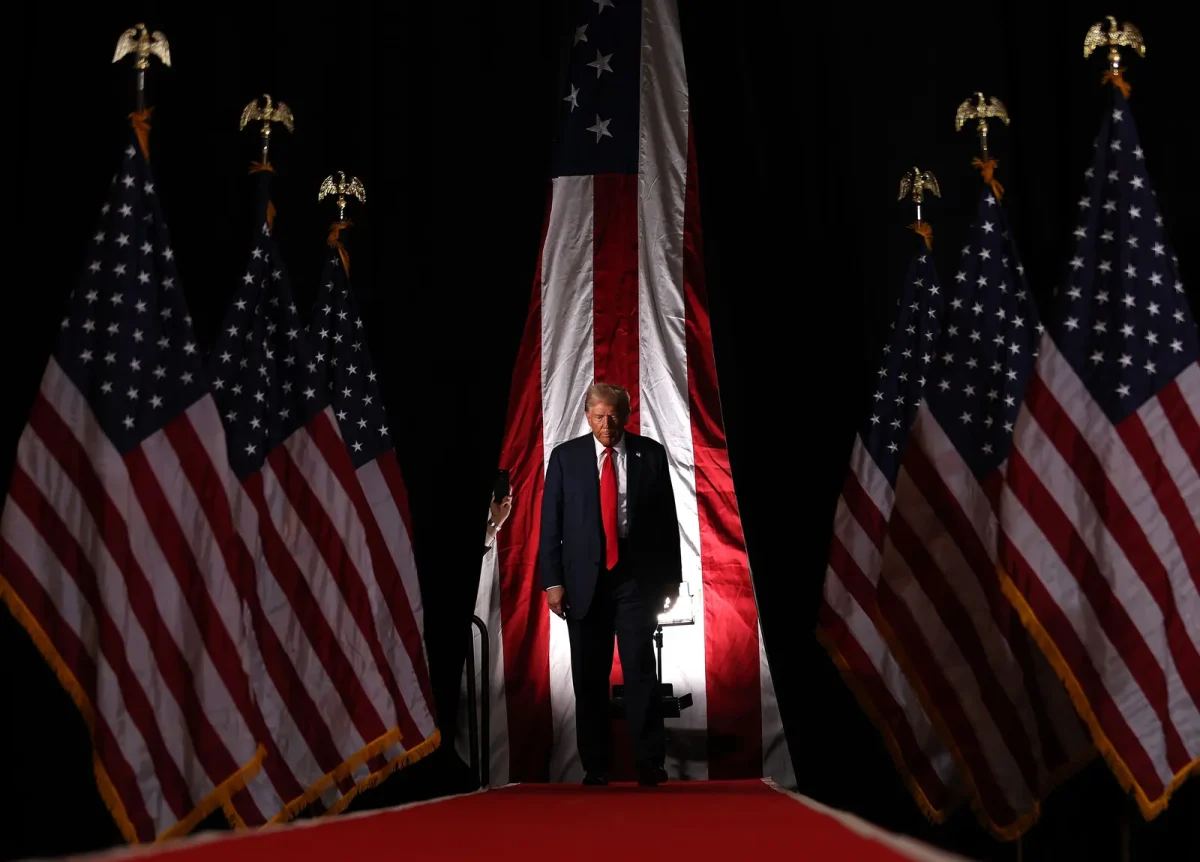Donald Trump has secured a second, non-consecutive term as president of the United States, defeating Vice-President Kamala Harris. His victory came after crucial wins in battleground states like Pennsylvania, Michigan, and Wisconsin, granting him the support necessary to reclaim the White House.
Trump enters this term after well-known legal battles — including accusations of obstruction, financial misconduct, and his role in the January 6th Capitol attack. Many are concerned about this background and its implications on his conduct and suitability for office.
Trump’s victory underscores the ideological divide between his supporters and critics. For his base, Trump’s return signals a victory for “America First” policies — policies they believe strengthen the economy, bolster national security, and assert the country’s standing on the global stage. For many others,his presidency represents a concerning regression on critical issues like rights, freedoms, and democratic norms.
A Country Divided
Reactions to Trump’s win reflect the widening ideological rift in America. Some see Trump’s return to the White House is seen as a continuation of policies that promote economic growth and secure borders. Others fear it will deepen existing societal fractures, particularly on issues like women’s reproductive rights, immigration, and civil liberties.
Trump’s leadership style — marked by combative rhetoric, a rejection of established political norms, and a reliance on executive power — has sparked concerns about his ability to unite the nation. While his supporters view his approach as a necessary challenge to the political establishment, critics argue it has contributed to polarization with many questioning whether his presidency will heal or further divide the country.
Abortion and Immigration
Trump’s opposition to abortion has sparked strong backlash from those who see it as a dangerous rollback of women’s rights. Given his less-than-stellar track record on supporting women and treating them with respect, many are understandably concerned about the implications of his policies. His supporters argue that his stance reflects a commitment to protecting life and returning power to the states, but that argument is hollow to many who prioritize women’s autonomy.
Similarly, Trump’s hardline immigration policies, including the continued push for a border wall and efforts to secure the U.S.-Mexico border, have drawn sharp criticism from those who believe in America’s values as a nation of immigrants. On the other hand, many of his supporters view these measures as necessary to protect national security, preserve jobs, and maintain public safety.
Legal Challenges and Governance
Trump’s leadership has raised important questions about the rule of law. Critics argue that his ongoing legal issues—like charges of obstruction and financial misconduct—hurt his credibility. Despite this, many voters have chosen to support him for another term, which raises important questions about how much accountability the public expects from its leaders.
This situation reflects a larger trend in politics where party loyalty often overshadows legal and ethical concerns. Many of Trump’s supporters see the legal challenges against him as politically motivated, which strengthens their support and feeds into his narrative of being an outsider fighting a corrupt system. This creates a divide in how people view the law and its application to leaders.
These dynamics also prompt us to think about the state of American democracy. If many voters prioritize loyalty over legality, it raises concerns about the weakening of the norms that support democratic governance. The effects of this shift could be significant, affecting not only Trump’s future but the behavior of voters, the internal dynamics of political parties, and the integrity of our democratic institutions.
The Road Ahead: Uncertainty and Division
Looking ahead, Trump’s second term promises uncertainty and division. While his supporters hope for a prosperous future based on conservative values, many worry about the long-term effects of his presidency on democratic institutions, economic stability, and individual rights. Key issues like civil rights, healthcare, and environmental protection will likely be at the center of national debates, as citizens and lawmakers consider how Trump’s policies might impact those areas.
The divide in American society means discussions around these topics could become increasingly heated. For example, Trump’s approach to healthcare may appeal to those who want less government involvement, but critics fear it will harm vulnerable populations. Similarly, his environmental policies, which often prioritize economic growth, might worry those who see climate change as a pressing issue.
Concerns about civil rights protections could also lead to strong reactions from advocacy groups and communities worried about losing progress made in recent years. These tensions will likely influence public conversations and the actions of lawmakers in the coming years.
As Trump faces these challenges, how he addresses the concerns of different groups will be crucial. Balancing the needs of his supporters with those of other citizens will test his leadership.
The Power of Engagement
The future of America is in the hands of its citizens. Many worry about the impact of Trump’s leadership on our democracy. However, it’s important to look toward the future and recognize that change starts in our communities. Now more than ever, it’s essential for all Americans, regardless of political views, to engage in the democratic process to make sure their voices are heard, and their rights are protected.
Ultimately, the strength of democracy lies not just in its institutions, but in the commitment of its citizens to protect their rights and freedoms.
It’s crucial to remember that the government exists to serve the people — not the other way around. This means holding elected officials accountable and demanding transparency because no one is above the law.


